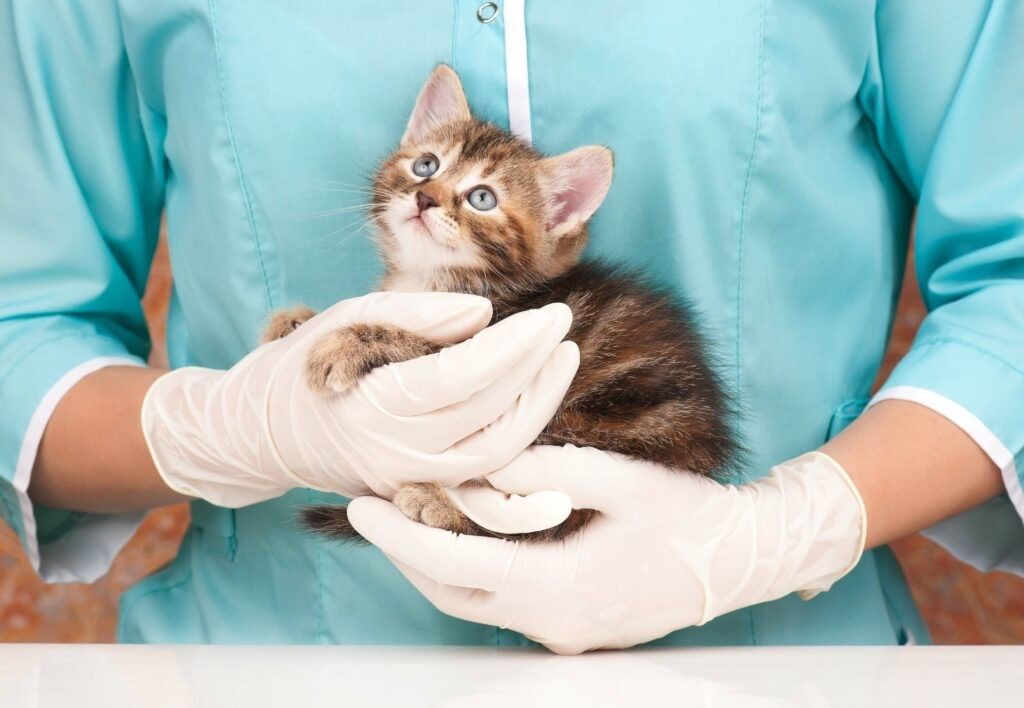There is more to caring for a kitten than just games and hugs. One important part of keeping your kitten healthy is deworming. Kittens are particularly vulnerable to worms, which can cause health problems if not treated early. However, when should one begin deworming? In this article, we’ll explore when can you deworm a kitten, why it’s important, and how to do it properly.

Why is Deworming Important for Kittens?
Worms are common parasites in kittens. Roundworms and hookworms are the usual culprits, and they can cause serious health issues if left untreated. Kittens can get worms from their mother’s milk or even from their environment. That’s why deworming is a crucial step in your kitten’s early care.
What Happens If You Don’t Deworm a Kitten?
If worms are not treated, your kitten could experience:
- Bloating
- Diarrhea
- Weight loss
- Weakness
- Slow growth
In severe cases, a heavy worm load can cause intestinal blockages, which can be life-threatening. Regular deworming is crucial for this reason.
When Can You Deworm a Kitten?
The right time to start deworming is early. Deworming kittens as early as two weeks of age is possible. Most kittens are born with worms or get them shortly after birth, so early treatment helps prevent complications.
Recommended Deworming Schedule
Here’s a general timeline for when to deworm kittens:
2 Weeks Old: First deworming treatment.
4 Weeks Old: Second dose.
6-8 Weeks Old: Another dose if needed.
After this initial phase, continue deworming every 2-4 weeks until the kitten is 3 months old. From then on, your vet may recommend monthly treatments until they reach 6 months old.
When Should Kittens Be Dewormed?
If you’re asking when should a kitten be dewormed, it’s important to follow a consistent schedule. Regular deworming helps protect your kitten from health issues and ensures they grow properly.
Deworming Before Vaccinations
Kittens should be worm-free before their first vaccinations, usually around 6-8 weeks old. Worms can weaken their immune system, making vaccines less effective.
What If You Don’t Know Your Kitten’s Deworming History?
If you’ve adopted a kitten and aren’t sure about their deworming schedule, consult a vet. They will examine your kitten and recommend the appropriate treatment. Deworming should start as soon as possible if the kitten is older than 2 weeks and hasn’t been treated yet.
How to Deworm a Kitten
Deworming your kitten is a simple process, but it’s essential to do it correctly. Here’s how you can ensure your kitten gets the treatment they need:
1. Visit Your Vet
The finest deworming treatment for your kitten will be decided by your veterinarian. Not all dewormers are the same, and using the wrong one can be harmful.
2. Choose the Right Dewormer
Dewormers come in different forms, such as tablets, liquids, and even topical treatments. Your vet will recommend the best option based on your kitten’s age and weight.
3. Follow Instructions Carefully
Always give the dewormer exactly as prescribed. Missing doses or giving too much can affect how well the treatment works.
4. Monitor Your Kitten
After deworming, watch your kitten for any side effects like vomiting or diarrhea. These are usually mild and temporary. If the symptoms persist, contact your vet.
When Can I Deworm My Kitten at Home?
While it’s always best to consult a vet, you can deworm your kitten at home if you have the correct medication and know their weight. Be cautious, though—incorrect dosing can harm your kitten.
What If Your Kitten Still Has Worms?
Sometimes, one round of deworming isn’t enough to clear all the worms. In such cases, follow up with your vet. They may recommend additional treatments to fully eliminate the parasites.
When Should I Deworm My Kitten Regularly?
After the initial deworming treatments, it’s essential to keep your kitten on a regular schedule. Here’s what that looks like:
- Every Month: Until your kitten is six months old, every month.
- Every 3 Months: Once your cat reaches adulthood, regular deworming every three months helps keep them worm-free.
- Outdoor cats or those who hunt might need more frequent treatments due to higher exposure risks.
Common Questions About Deworming
When Do Kittens Get Dewormed at the Vet?
Kittens often receive deworming treatments during their first vet visits. If you’re adopting or buying a kitten, ask the breeder or shelter when can I deworm my kitten to ensure you stay on track.
Can I Deworm a Kitten Without a Vet?
Yes, but it’s essential to use the correct medication and dosage. Always read the label and consult a vet if you’re unsure.
What Are the Signs My Kitten Needs Deworming?
Look for symptoms like:
- Bloated belly
- Poor coat condition
- Diarrhea
- Visible worms in their stool
If you notice any of these signs, it’s time to deworm your kitten.
Final Thoughts
Deworming is a vital part of kitten care. Knowing when can kittens be dewormed and sticking to a proper schedule ensures your kitten stays healthy and happy. Regular deworming not only protects your kitten but also helps safeguard other pets and family members from potential worm infestations.
For more helpful tips on kitten care, visit CatTopTips. Our website offers expert advice on keeping your feline friends healthy and thriving.
FAQs About Deworming Kittens
1. How Often Should I Deworm My Kitten?
Kittens should be dewormed every 2-4 weeks until they are 12 weeks old. After that, monthly treatments are recommended until they reach 6 months. Adult cats should be dewormed every 3 months.
2. Can I Use Over-the-Counter Dewormers for My Kitten?
Over-the-counter dewormers can be effective, but it’s best to consult your vet first. Some products may not be suitable for young kittens or may require specific dosages based on their weight.
3. What Are the Side Effects of Deworming Kittens?
Common side effects include mild diarrhea, vomiting, or lethargy. These usually resolve within 24 hours. If symptoms persist or worsen, contact your vet for further advice.
4. Can Worms Be Passed from Kittens to Humans?
Yes, some worms, like roundworms, can be transmitted to humans. Proper hygiene, regular deworming, and cleaning litter boxes help reduce this risk.
5. Do Indoor Kittens Need Deworming?
Yes, even indoor kittens can get worms from contaminated surfaces, other pets, or flea infestations. Regular deworming is crucial regardless of your kitten’s living environment.
6. How Can I Prevent My Kitten from Getting Worms Again?
Keep your kitten’s living area clean, use flea prevention, and ensure they don’t eat raw or contaminated food. Regular vet checkups also help detect and prevent worm infestations.
7. What Should I Do If I See Worms in My Kitten’s Poop?
Seeing worms in your kitten’s stool is a clear sign they need deworming. Schedule a vet visit to confirm the type of worms and get the appropriate treatment.


